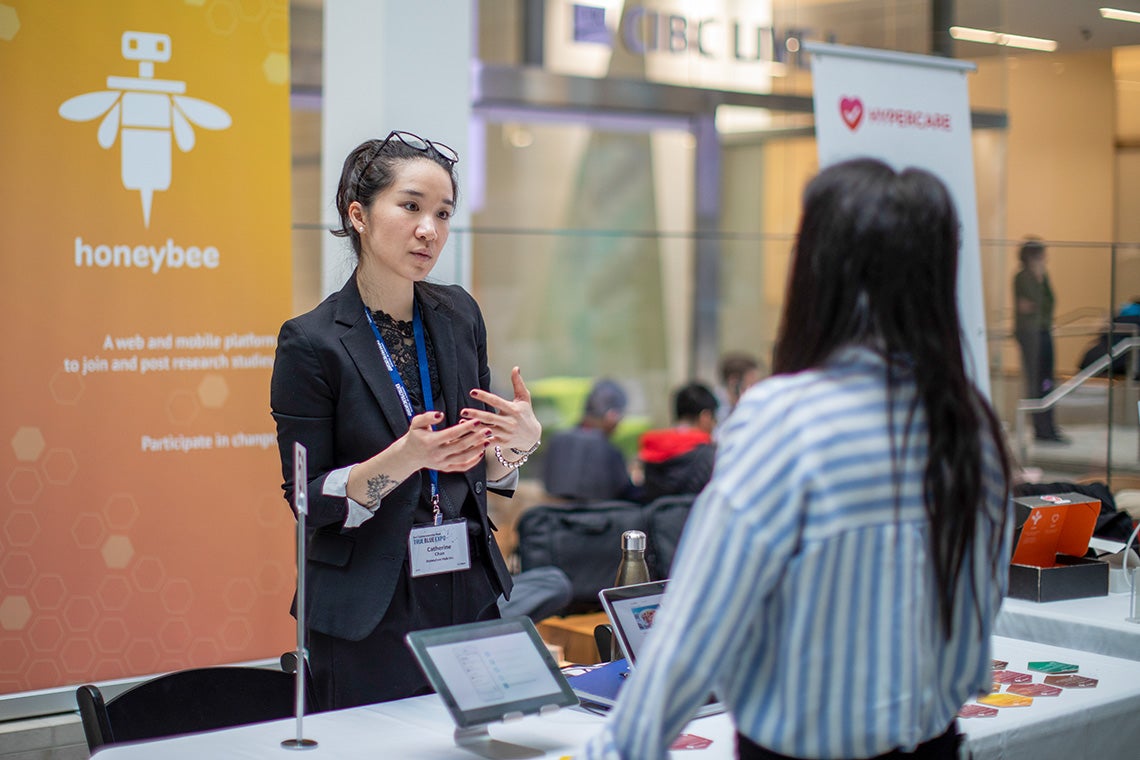
From speeding the discovery of life-saving drugs to reducing the amount of plastic clogging the oceans, University of Toronto entrepreneurs and their startups are engaged in tackling some of the most pressing challenges of the day.
Over the past decade, U of T has nurtured 500 startups that have secured some $1.5 billion in investment. Many of the companies were founded by students who sought to provide innovative solutions to problems. Others were launched by professors who were looking to implement their research in the real world.
What they all have in common is that they emerged from a university entrepreneurship ecosystem that’s ranked first in Canada and among the top 10 in the world.
With Entrepreneurship Week underway, here’s a look at 10 exciting U of T startups to keep an eye on in 2020:
Structura Biotechnology
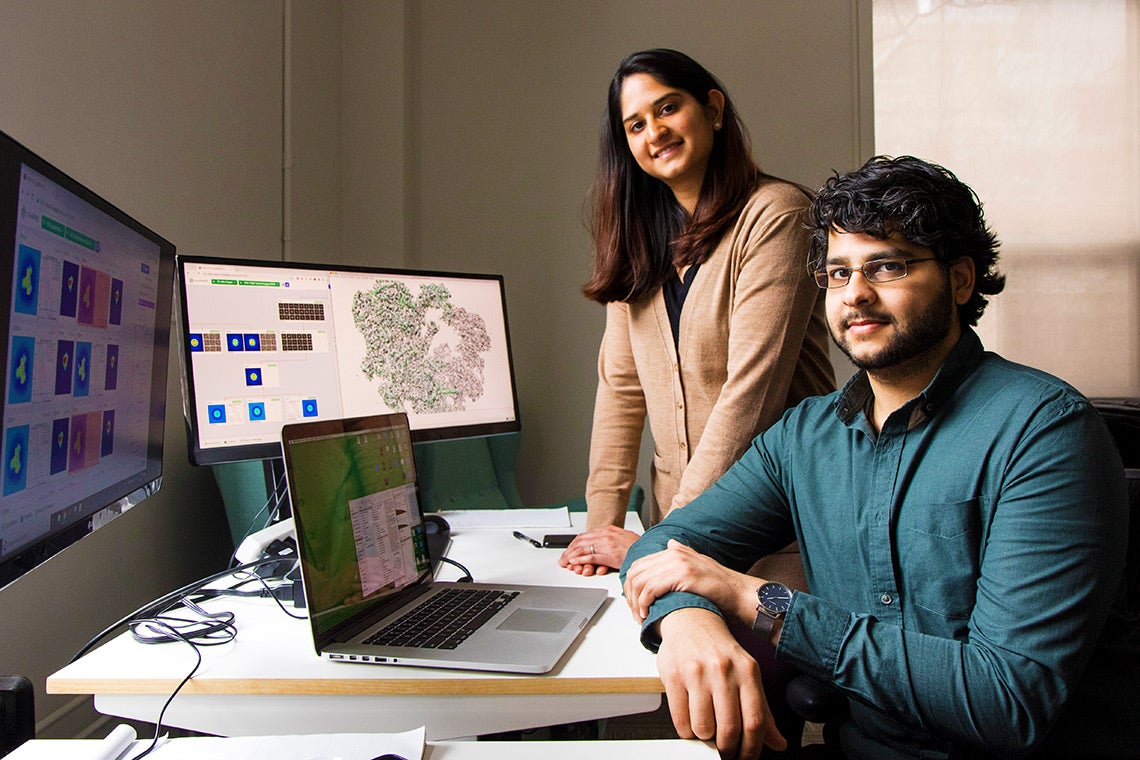
(photo by Chris Sorensen)
When researchers in the United States worked to create the first 3D, atomic-scale map of the part of the novel coronavirus that infects human cells, a key step toward creating a vaccine, they relied on software created by U of T startup Structura Biotechnology.
Structura’s cryoSPARC program, which uses artificial intelligence to create 3D visualizations of protein, was spun out of Ali Punjani’s PhD research in computer science at U of T and was designed by alumnus Suhail Dawood. The startup received support from U of T’s UTEST accelerator.
The software enables scientists to visualize images captured using cryogenic electron microscopy, a Nobel Prize-winning technique that enables the capture of high-resolution photos of proteins by shooting electrons at frozen samples.
The technique has already garnered the attention of several big drug companies, but Punjani’s sister, Saara Punjani, the company’s chief operating officer, said the use of cryoSPARC in efforts to battle the coronavirus is an exciting development.
“Part of the reason we got into it is, at the end of the day, because we are looking to make a difference,” she told U of T News.
Roll Technologies
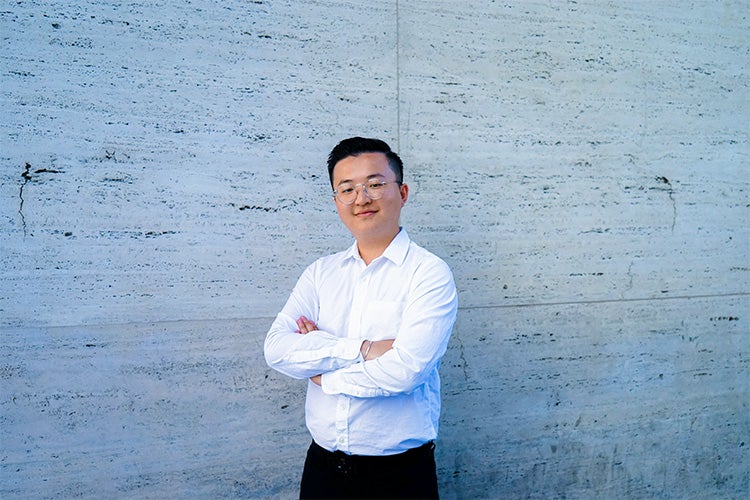
(photo couretsy of Roll Technologies)
Founded by U of T Scarborough alumnus Richard Cao, e-scooter startup Roll Technologies recently deployed 200 e-scooters and 50 electronic bikes (e-bikes) in Kelowna, B.C. after securing a deal with the city.
Cao’s father works in the e-bike and e-scooter manufacturing sector in China. That helped Cao formulate the idea behind Roll Technologies and develop some of the necessary connections. He then went to The Hub, U of T Scarborough’s startup accelerator, and worked with Director Gray Graffam, who set about differentiating Cao’s company from others in the burgeoning e-mobility space.
Originally from Shanghai, Cao described e-scooters as “a popular and effective form of shared mobility – and one that provides a green solution to a common urban transportation problem.”
BenchSci
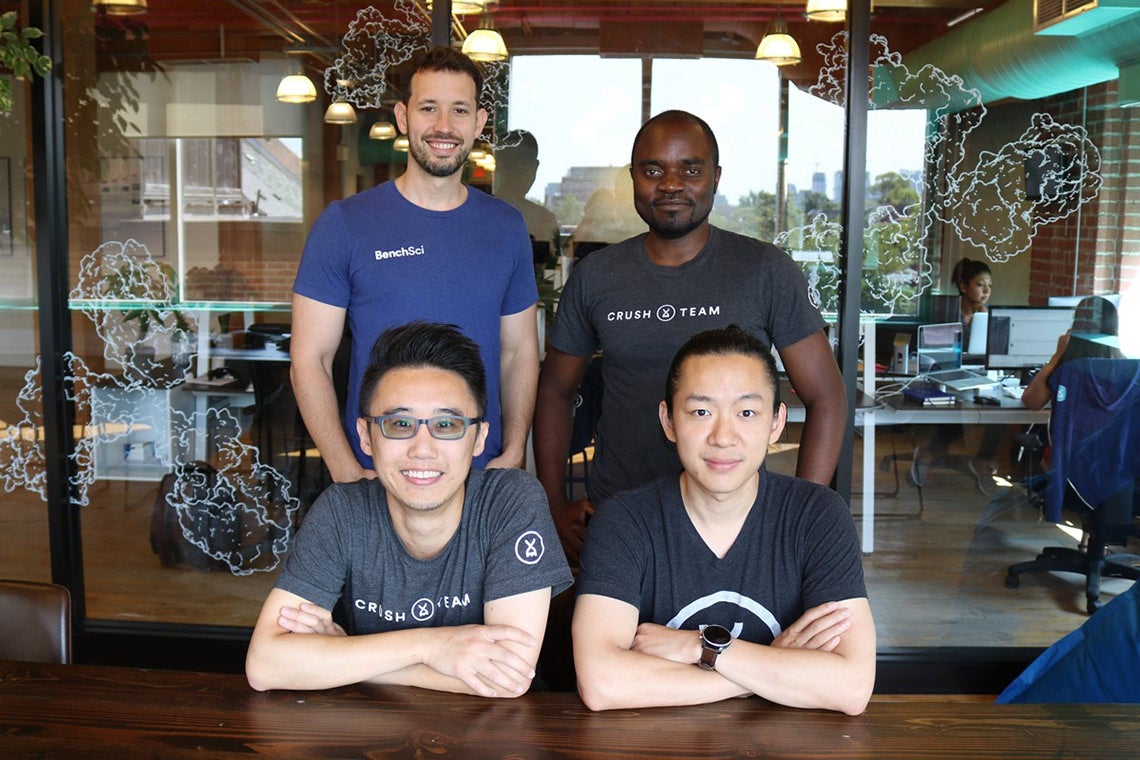
(photo courtesy of BenchSci)
BenchSci, which uses machine learning to help scientists find the appropriate antibodies for their experiments, is backed by investors including Google’s Gradient Ventures, and counts some of the world’s top pharmaceutical companies among its clients.
The company grew out of frustrations experienced by Tom Leung, who, while working on his PhD in epigenetics, had experiments fail because his antibodies weren’t detecting target proteins. In search of a better solution, Leung reached out to David Chen, who was doing doctoral research in neuroscience, and Elvis Wianda, who was doing his PhD in medical biophysics.
The trio initially worked with U of T’s Entrepreneurship Hatchery and Health Innovation Hub (H2i) to get BenchSci up and running. They were later recruited to the Creative Destruction Lab by then-MBA candidate Liran Belenzon, who eventually joined the company as CEO.
Going forward, Belenzon says he envisions BenchSci “playing a crucial role in transforming scientists into ‘super-scientists’ and helping them get cures to patients faster.”
Ecopackers

(photo by Nick Iwanyshyn)
Conceived by CEO Nuha Siddiqui during her time as president of the U of T chapter of the social entrepreneurship club Enactus, Ecopackers is on a mission to reduce the world’s reliance on single-use plastics.
The company, developed with support from the Creative Destruction Lab, got its start manufacturing biodegradable packing peanuts made from agricultural byproducts. It has since expanded into producing eco-resins that can be used by manufacturers in place of plastic.
Unlike many existing bioplastics, Ecopackers’ resin is designed to be compatible with existing manufacturing technologies and processes.
“We were one of the only eco-focused companies out there that wasn’t going against the plastic manufacturers – we were actually trying to work with them to develop products that worked with their technology,” Siddiqui, a Rotman Commerce graduate, told U of T News.
The all-woman leadership team behind Ecopackers – which also includes chief technology officer Chang Dong and chief operating officer Kritika Tyagi – is now working on pilot products with manufacturers around the world.
Cohesys
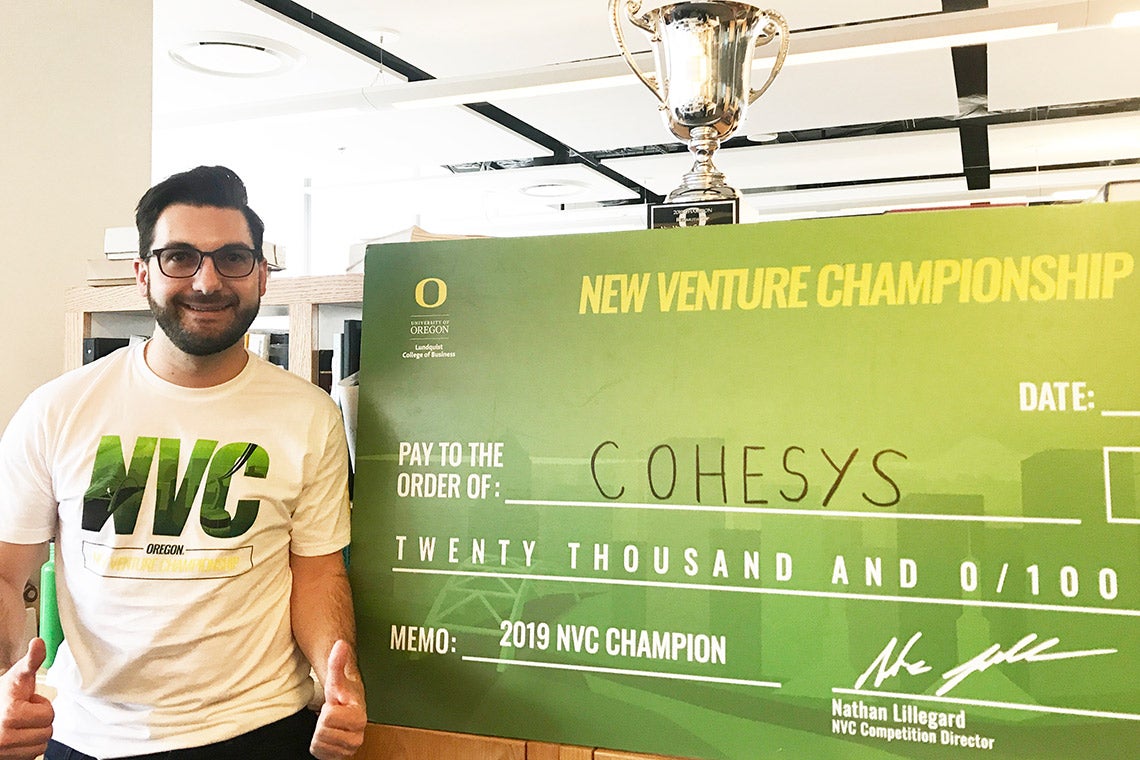
(photo by Erin Vollick)
Spun out of research by Professor Paul Santerre at the Faculty of Dentistry and the Institute of Biomaterials and Biomedical Engineering (IBBME), Cohesys is a biomedical startup that has developed a better alternative to the rigid metal plates and screws used to repair facial fractures.
The company’s BoneTape is a flexible, adhesive and degradable material that holds promise in improving surgery times, reducing complications and boosting outcomes for patients who undergo facial surgery.
Supported by UTEST and the Health Innovation Hub (H2i), Cohesys raised a total of $1.4 million in funding as it looks to pursue preclinical animal studies, biotechnology industry magazine BioWorld reported.
“This is the only adhesive that sticks to wet bone,” Michael Floros, CEO of Cohesys and a recent IBBME post-doctoral researcher, told U of T News last year. “There is no other tape for bones or anything similar out there.”
Reeddi
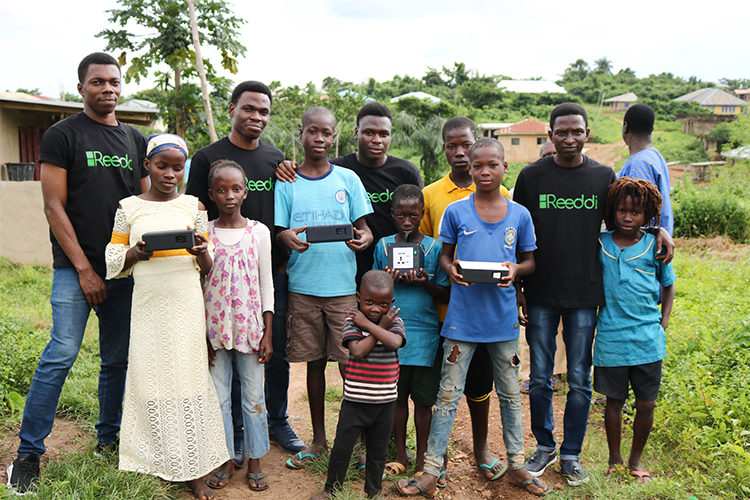
(photo courtesy of Olugbenga Olubanjo)
As an international graduate student at U of T, Olugbenga Olubanjo regularly spoke with family and friends in his native Nigeria over the phone, only to have the calls cut short due to power outages back home. He decided to do something about it – and Reeddi was born.
The company, which was nurtured by the Entrepreneurship Hatchery, provides portable energy via capsules that can be charged at solar-powered stations. Customers rent the capsules at affordable prices and earn credits when they return them on time.
Reeddi wants to bring clean and affordable energy to communities in Nigeria and beyond, with Olubanjo saying the startup has attracted interest from organizations and communities in countries like South Africa, Indonesia, India and the United States.
“Anywhere where there’s an energy or electricity issue is where we come into play. We want to be in as many countries as possible,” Olubanjo told U of T News.
AmacaThera
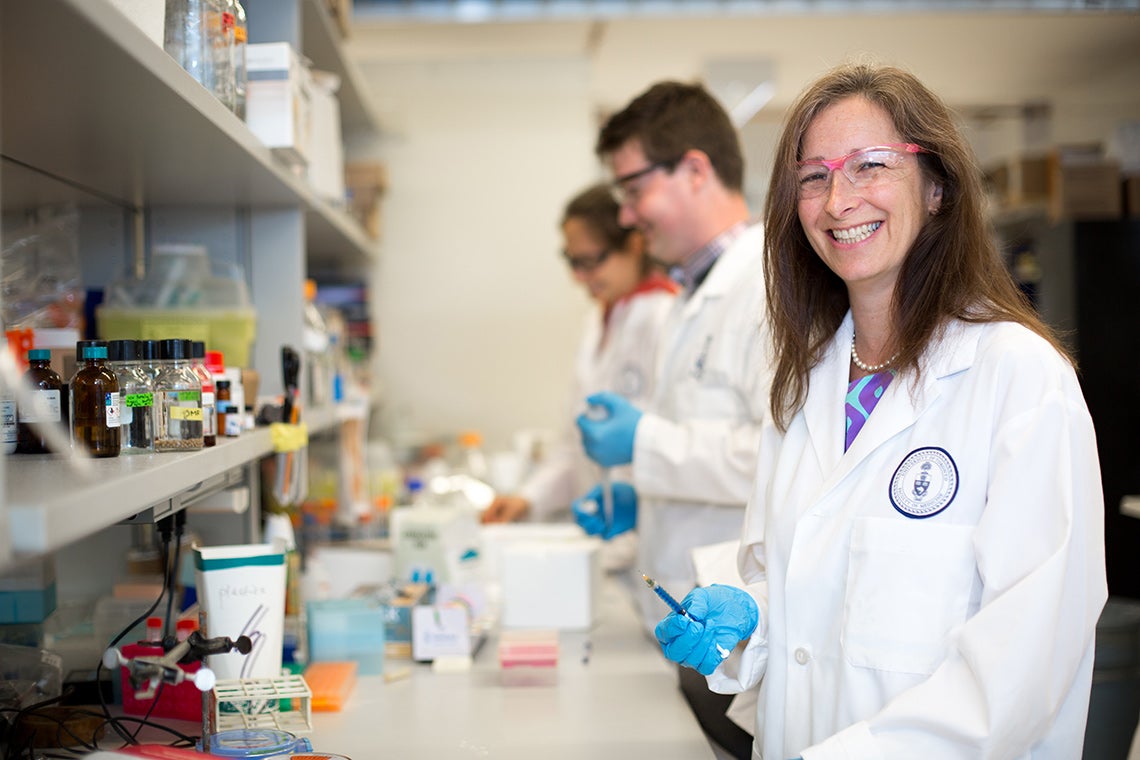
(photo by Roberta Baker)
A gel-based drug delivery system developed by U of T startup AmacaThera could eliminate the need to prescribe powerful painkillers after surgery – and reduce the risk of developing opioid addiction.
Developed in the lab of University Professor Molly Shoichet, in the department of chemical engineering and applied chemistry and IBBME, the gel is capable of significantly increasing the duration of anesthetics injected at the site of surgical incisions.
Whereas drugs delivered through conventional injections disperse in a matter of hours, AmacaThera’s solution is capable of keeping the anesthetic at the surgical site for up to three days.
“If this could obviate the need for people to take opioids in the first place, it would have a real societal benefit,” Shoichet told U of T News early last year.
AmacaThera is the third startup built on research from Shoichet’s lab. It received support from UTEST and the Creative Destruction Lab.
Honeybee Hub

Finding suitable participants for research studies can be an arduous and time-consuming process – something Honeybee Hub is looking to change.
Co-founded by CEO Catherine Chan (left) while she was pursuing her master’s degree in nutritional sciences, Honeybee Hub’s solution is an online platform that helps researchers find subjects for their studies and makes it easier for the public to find studies to participate in.
Chan got the idea while working on her master’s thesis and was encouraged to pursue it by her supervisor, Harvey Anderson, a professor in the departments of physiology and nutritional sciences in the Faculty of Medicine.
She then partnered with co-founder Weiwei Li, who earned a master’s degree in applied science, with the company receiving mentorship and support from the Impact Centre.
“Researchers are spending too much time on advertising and administrative tasks rather than their expertise, and we want to change that,” Chan told U of T News.
Nanology Labs
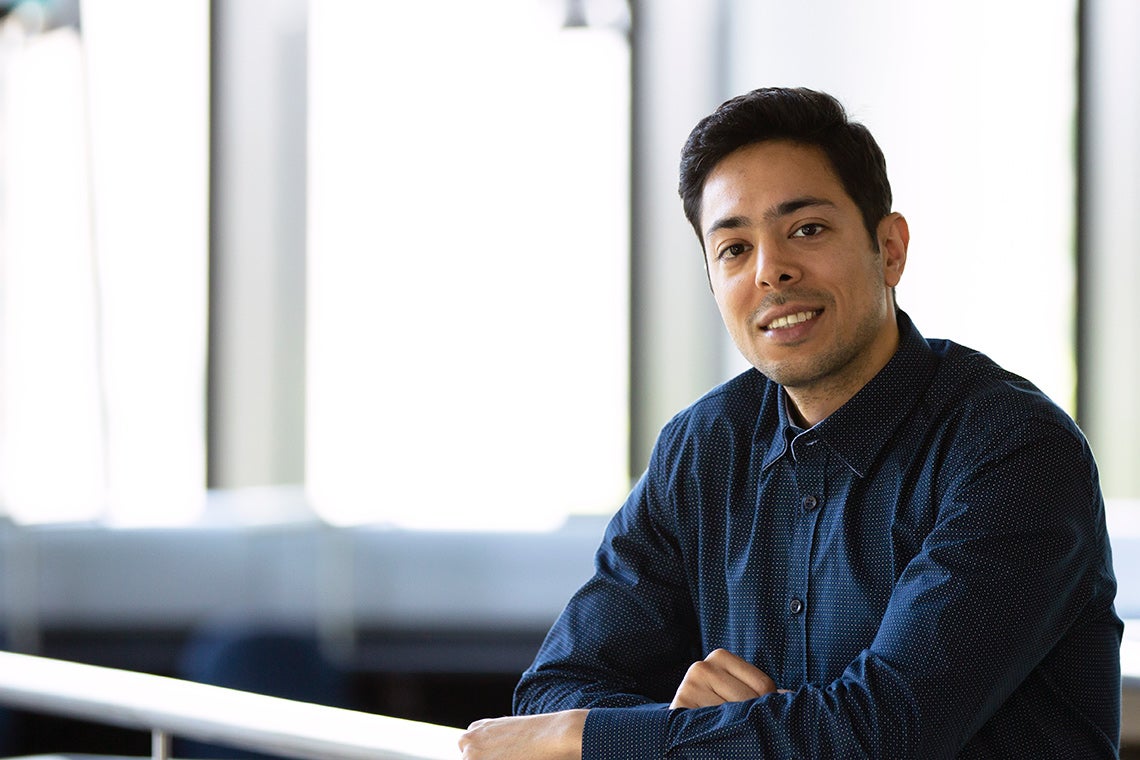
(photo by Steve Southon)
Nanology Labs is a pharmaceutical startup that has developed a low-toxicity MRI contrast agent that can improve cancer detection.
Launched by Mohammad Ali Amini while he completed his PhD, Nanology Labs leverages over two decades of research in the lab of Amini’s supervisor, Professor Xiao Yu (Shirley) Wu in the Leslie Dan Faculty of Pharmacy.
The company’s innovative MRI contrast agent, called Manganescan, uses the element manganese, which naturally exists in the human body and is safer and less toxic than contrast agents made from gadolinium.
Built with support from numerous U of T accelerators including the Health Innovation Hub (H2i), UTEST and the Impact Centre, Nanology Labs has won several awards including the $25,000 top prize at the 2019 RBC Prize for Innovation and Entrepreneurship at the True Blue Expo.
“If you want to be successful, create your own path,” Amini told U of T News last year. “This is what I’ve learned.”
Niu Body
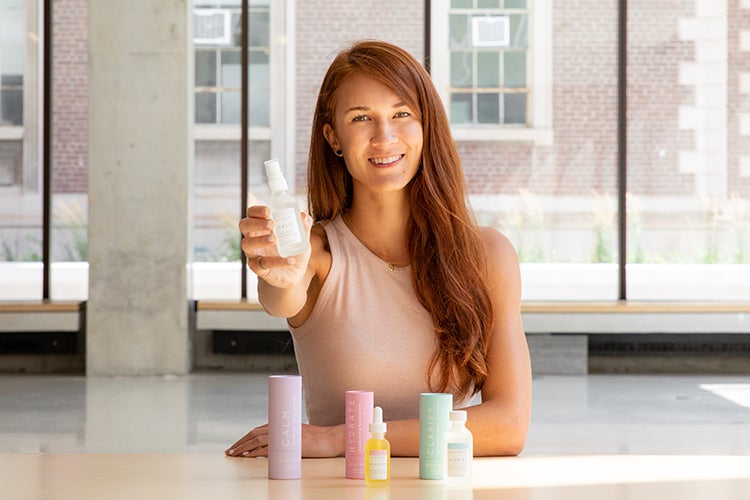
(photo by Roberta Baker)
Co-founded by chemical engineering alumna Laura Burget, Niu Body creates skin-care products that are all-natural yet affordable.
Burget was inspired to start the company after taking a course on entrepreneurship and small business in her fourth year. She teamed up with Connie Lo, who has a background in business and accounting, and launched the company with an initial budget of only $4,000.
In just two years, the number of retailers carrying Niu Body’s products swelled from one to over 300.
“Consumers are demanding better quality, more natural ingredients and at an affordable price,” Burget told U of T News in September. “Our company’s mission is to create natural skin-care products that won’t break the bank.”
Burget credited her U of T engineering degree with her credibility in the business world.
“When I tell manufacturers and investors I have a chemical engineering degree, it tells them I know what I’m talking about and what I’m capable of.”








